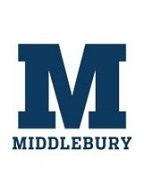Student Ambassadors
Speaking with a student ambassador is a great way to get a previous student’s perspective on the Language Schools experience.
If you would like to connect with a student ambassador to ask questions, please contact Lesley Huston, School of Abenaki Assistant Director, at schoolofabenaki@middlebury.edu.
Angel Littlecrow
Hometown: Brattleboro, Vermont
Program: 2-week Immersion
Current: LGBT2S+ Patient Advocate
What surprised you about your experience at the Middlebury Language Schools?
I was surprised by the sense of community upon first arrival to the School of Abenaki. While I was privileged to know many attendees as learners and teachers of the language prior to our mutual residence at Middlebury, I’d never met them in person—nor the individuals who had come to study the language for the first time! It was exciting to realize how many learners and teachers had come to be a part of this program.
Being a newer program centered on the revitalization of an Indigenous language, friendships and kinship felt immediate. The Abenaki language contains within itself teachings requiring both cultural context as well as personal self reflection, so discussing with one another these philosophies was crucial to breaking the “I don’t know how to say what I want to say!” barrier of anxiety, and I was humbled to meet individuals with the desire to explore that work. I learned as much from the community of my classmates as I did our mentors.
Why did you choose to study at the Middlebury Language Schools?
I desired the ability to express myself in one of my native languages, to live within a community of its speakers, to be an active participant in its reclamation, and to celebrate the monumental success of a language which had been declared “extinct” now being taught in a college setting by its biggest advocates. I believed the School of Abenaki would be an incredible opportunity, an amazing program, a wonderfully introspective community, and it was.
Please describe how your language skills improved due to your studies at Middlebury.
The School of Abenaki guided me to the ground floor, the framework of an ability to speak and create through fields dancing haphazardly between music, media translation, healthcare, and treaty recognition. The difficulty of Indigenous language reclamation is not only a plain lack of access, it’s also the broader lack of access to a community of speakers. Immersion was difficult, embarrassing, but once we moved toward comfort verbal mistakes felt poetic.
At first I was expressing myself with the vibrant confusion of a child learning, fumbling for the right words until just settling on temporarily renaming the shower or microwave, and I was taken by the playfulness of my classmates also stringing together the smattering of what we knew until together we were “really” speaking. The language was constantly reaffirmed by our mentors not only through classic study but through music, in-jokes, storytelling.
Is there anything else that you would like to let a student know about your experience?
The time you wake up is also the time you’ll be wanting to go to bed. While I didn’t find the workload overwhelming, I acknowledge that it is constant work; due in-part to the complex nature of revitalizing a language and then ingraining this framework within a 2-week time period.
What other language learning opportunities have you had?
I grew up in a multilingual household, and children began learning Mandarin in a standardized fashion where I’d attended primary school. Despite years of exposure as well as study I still felt like a beginner entering into second language settings, and only realized later that this was due to the difference in the way I learn being a stark contrast to how I had been instructed.
At Middlebury I felt there was flexibility enough to incorporate every student’s preferred method(s) of learning while still remaining on a guided curriculum. With staff and classmates willing to enthusiastically discuss the numerous ways we learn, at no point did I feel that anxious sense of urgency that, maybe, I wasn’t learning quickly enough. While the 2-week program was a fast-paced academic environment, there was an attention paid to learners by the program’s guardians which made its quickness both manageable and even fun!
The School of Abenaki provided a setting where mistakes were as profound as success, failure quite literally not being an option. We functioned as a community of speakers, the community aspect I feel being intrinsic to the language proficiency I witnessed my classmates all gain. There was endless support and collaboration.

Wang Yung-Hsin
Current: Kwinitekw, on traditional Nonotuck land
Program: 2-week Immersion
Current: Writer, Interpreter/Translator, Reviewer
Why did you choose to study at the Middlebury Language Schools?
As a serial migrant, I am compelled to acquaint myself with this land’s traditional keepers on their own terms, and learning Abenaki has been one way to connect with a community in a relational and respectful manner. At the core, it is about being neighbourly. As a writer/translator, visual arts interpreter, and lifelong student of languages, I am grateful for the new ways of seeing, understanding, and relating that have evolved as I continue to learn Abenaki.
